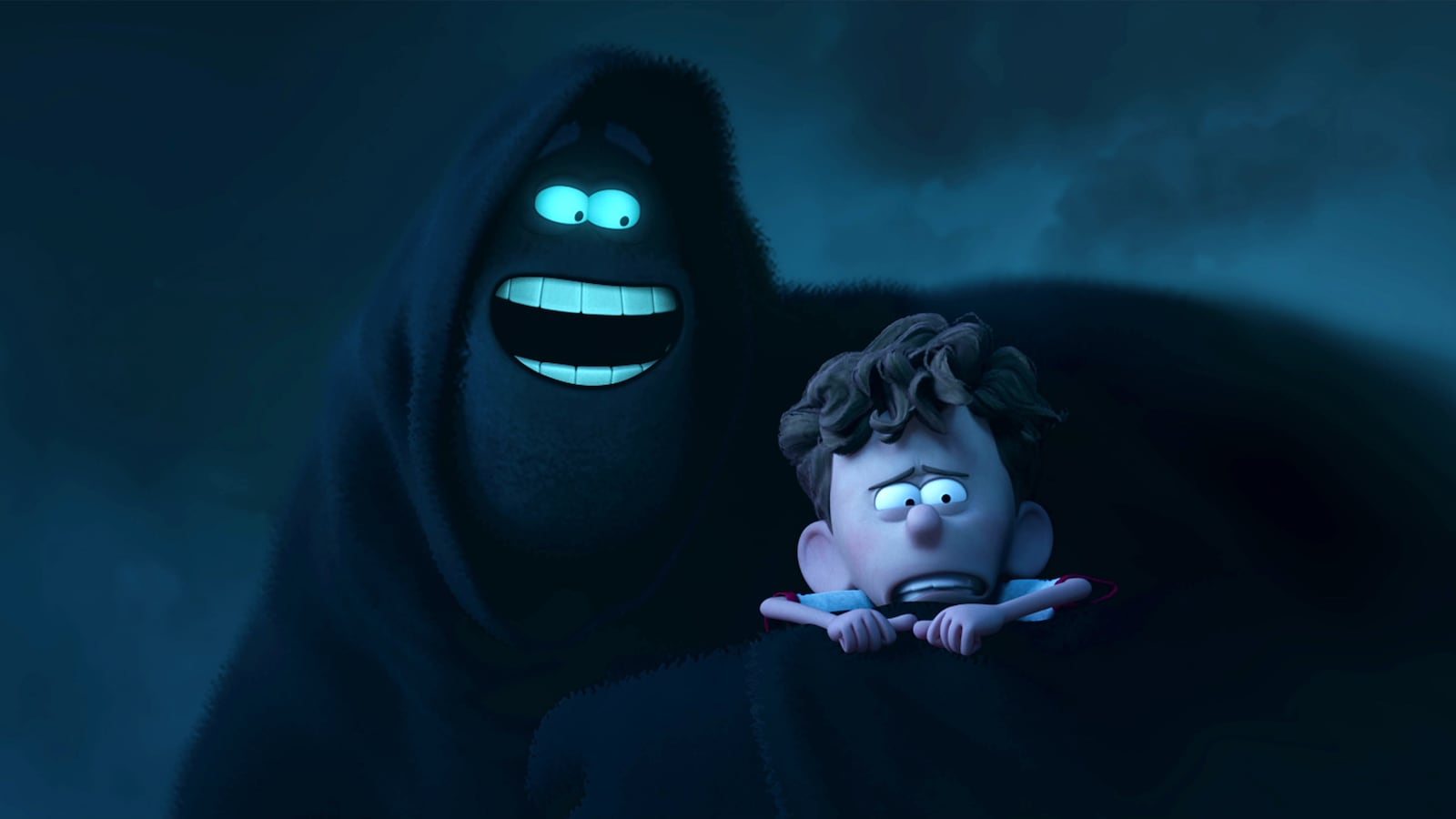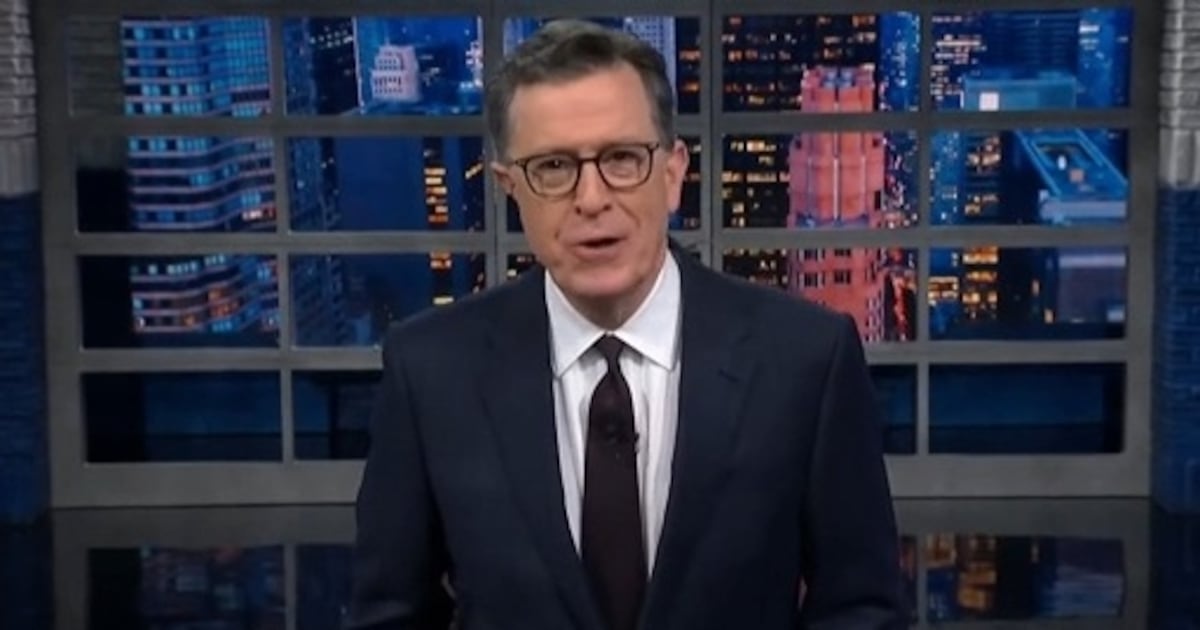Being John Malkovich scribe Charlie Kaufman has a singular voice and most modern CG animated movies look and sound alike, which leaves Orion and the Dark stuck in a middle ground between the distinctive and the generic. An adaptation of Emma Yarlett’s book that’s written by Kaufman and directed by first-time helmer Sean Charmatz, the Netflix feature, which premieres Feb. 2, boasts the idiosyncratic anxiety, depression, and angst of its author’s work and the bouncy tone and matching visual style of every other recent cinematic kid’s fable—two flavors that, it turns out, don’t really go well together.
Orion (Jacob Tremblay) is a fifth-grader who’s afraid of everything, from bees and big bad bully Richie Panici (Jack Fisher) to the thought of being humiliated in front of his peers. He’s a ball of nerves, and never more so than when thinking about Sally (Shino Nakamichi), the classmate for whom he desperately pines. While Orion wishes he could sit beside Sally at lunch under a playground tree, he instead munches on his tuna sandwich alone, imprisoned by the myriad phobias that he catalogs—in sketchy form—in his trusty notebook. Even the bathroom is a source of worry for the erudite boy, given that there’s always a chance that flushing the toilet will beget a clog that leads to a catastrophic overflow.
Orion’s prime concern is an upcoming field trip to a planetarium, and this remains true even after Sally asks him, unprompted, to sit together during the outing. His mom (Carla Gugino) and dad (Matt Dellapina) are likewise incapable of convincing him that this will be a fun adventure because Orion is a kid whose fears run so deep that—as evidenced by a brief fantasy sequence—they’re downright existential.
This makes the adolescent a prototypical Kaufman protagonist, and Orion and the Dark has some initial fun trying to wedge such a hand-wringing character into the confines of a traditional DreamWorks Animation effort. This continues even once Orion’s life is turned upside-down by the appearance of a magical nighttime visitor: Dark (Paul Walter Hauser), the embodiment of all that is shadowy and gloomy, who materializes in his bedroom as a hooded specter with bright white eyes and teeth, and who promptly shows Orion a brief biographical movie (“Dark has existed for over 500 million years. Since early life on Earth developed light-sensitive proteins”) narrated by Werner Herzog and sporting title credits by Saul Bass.

Those shout-outs are for-adults-only (as is a David Foster Wallace reference), but they’re merely decorations for the ensuing juvenile affair about Orion’s need to face and overcome his fears. As voiced by Hauser, Dark is a jovial sort who’s eager to convince Orion that he’s not scary by taking him on a 24-hour journey around the globe, during which time they meet Dark’s professional nocturnal colleagues: mousy Quiet (Aparna Nancherla), snoozy Sleep (Natasia Demetriou), fretful Insomnia (Nat Faxon), robotic Unexplained Noises (Golda Rosheuvel), and regal Sweet Dreams. All of them are color-coded personified abstractions à la Inside Out, and in the blandest way possible; though they have distinguishing personalities, they’re not particularly unique or funny, which is additionally true about the way they zoom across the sky like comets.
Dark wants Orion to know that darkness can be cool and fun rather than simply “a supernatural entity that evokes dread and despair” and for a while, he succeeds in that mission, at least until Dark’s shades-wearing rival Light (Ike Barinholtz) arrives to lift everyone’s spirits. Despite demonstrating how fireworks, stars, and other wonders are solely enjoyable at night, Dark is jealous of Light. Alas, Orion and the Dark does little with this central conflict. Likewise, its collection of “night entities” are ho-hum sidekicks without much novelty to offer; the sight of mosquito-ish Insomnia vocalizing slumbering people’s subconscious hang-ups into their ear is about as clever as things get. That they have little banter-y interaction with each other—aside from chiding Dark to stick with their age-old program—further makes them insubstantial.
Because Orion and the Dark doesn’t have a complex message to relay, it gussies up its action by adding a Kaufman-esque second narrative layer—Orion, it turns out, is a fictional younger version of the real adult Orion (Colin Hanks), who’s telling this story to his daughter Hypatia (Mia Akemi Brown), who in response to her dad’s yarn opines that humanity’s fear of the dark is “an evolutionary adaptation that people developed to protect themselves from nocturnal predators.” The grown Orion confesses that he’s making this all up as he goes along and that one of his plot points amounts to “gilding the lily,” and that description also pertains to this entire formal conceit, whose purpose is to cast storytelling as a means of combating insecurities, terror, and “mortal desperation.” It’s an unnecessary device, but worse, it undercuts Orion, rendering him a threadbare figment of others’ imagination.

Via Hypatia’s own comments, the film acknowledges that it’s treading into pat terrain, so in response, it stages a lot of third-act commotion to keep young viewers invested in its action. All the death, alienation, and apocalyptic black holes in the world, however, can’t mask the fact that Orion and the Dark is just about being brave enough to confront that which most frightens you—a point made so early on that the material has nowhere to go except into unnecessary convolutions. By its conclusion, Charmatz is resorting to Pixar-grade pathos to moisten viewers’ eyes, but without any underlying heft to his saga, the gestures prove more strained than poignant.
Kaufman’s fingerprints can be detected at various points along this journey, infusing the proceedings with as much genuine pre-teen anguish as this feel-good genre will allow. Unlike his R-rated stop-motion gem Anomalisa, though, the auteur’s latest is boxed in by the inherent constraints of kid cinema, which demands that no sharp edge remain un-sanded and no sad emotion go unremedied. Adults will mildly smirk at its Kaufman-isms and children may be mildly charmed by Dark—brought to gregarious life by the charismatic Hauser—yet Orion and the Dark’s likely fate will be receding into the dimmest corners of one’s memory.






